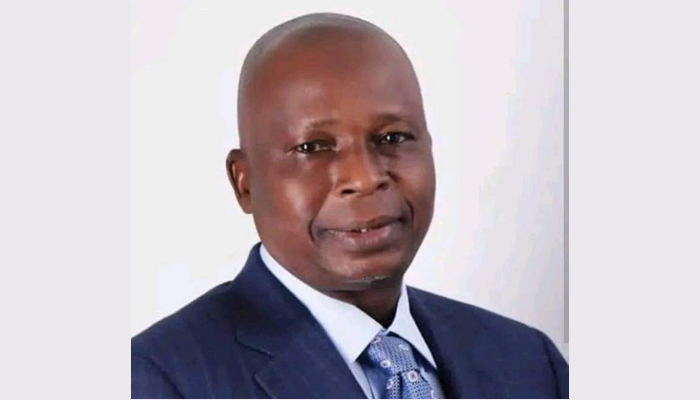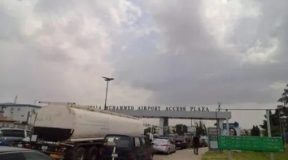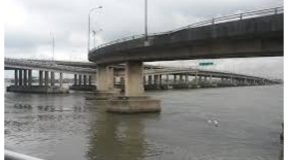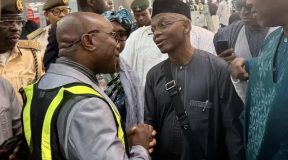British Virgin Islands court grants Chinese firm right to seize Nigerian $25m assetsA court in the British Virgin Islands has, again, granted Zhongshan Fucheng Industrial Investment Co. Ltd, a Chinese firm, the authority to seize another £20 million ($25 million) from Nigeria’s foreign denominated assets over an Ogun trade zone deal that fell through in the early 2000s under the administration of Ibikunle Amosun, the then governor of Ogun state.
In a swift reaction, the Presidency has assured that the federal government is studying the judgment and will respond appropriately.Daniel Bwala, Special Adviser to the President on Policy Communication, told BusinessDay that the judgment cannot be enforced immediately, noting that Nigeria will vacate the judgement.
Reports had revealed that Paul Webster, a judge at the British Virgin Islands High Court, in his judgement of November 8, 2024, held that Nigeria was not immune to execution of an arbitral award and subsequent judgment debt in favour of the Chinese company, Zhongshan, as a result of the wording of the underlying bilateral investment treaty concluded between China and Nigeria.
The judge held that a term of the treaty which provided that “both contracting parties shall commit to the enforcement of the award” constituted “a written consent of the Nigerian state.”
The judge, therefore, held that based on Section 13(3) of the State Immunity Act 1978, the British Virgin Islands must allow Zhongshan to enforce the judgement debt against Nigeria from the UK.
The ruling marks the latest in a string of losses Nigeria has suffered in foreign jurisdictions over the past years.
The British court, relying on the initial judgements on the same issue by courts in France, Belgium, Canada, the United States, British Virgin Islands, among others, found Nigeria liable to settle the debt and dismissed the country’s sovereign immunity argument as unfounded and unenforceable against Zhongshan.Zhongshan was said to have been represented in the case by Timothy Otty (King’s Counsel) and Lauren Peaty of Withers British Virgin Islands. But reacting to the judgement, Bwala told BusinessDay that the federal government will study the ruling and respond appropriately
“Based on what is before me, the preliminary response as is that this is not a judgement that will be enforced immediately. It is like a warning to the country to enter its defense and until such is done, the judgement cannot be enforced.
“No Judgement is considered substantive or said to carry ‘a natural Justice unless both parties are present in court.’”Bwala stated that Nigeria still has the chance to appeal and vacate the judgement, noting that the federal government will study it and respond appropriately.
Recall that a London commercial court had, in August, this year, granted the same Chinese firm, a final charging orders over two residential properties owned by Nigerian government over the same issue.
The Chinese firm had approached the court seeking to enforce a $70 million arbitration award against the Nigerian government.
The ruling was delivered by Lisa Sullivan, a master at the court, after Nigeria’s previous attempts to challenge the jurisdiction of the orders.The legal battle stems from a 2010 agreement in which Zhongshan, through its parent company Zhuhai Zhongfu Industrial Group Co. Ltd, secured rights to develop a free trade zone in Ogun State, Nigeria.
In 2011, Zhongshan established a Nigerian entity, Zhongfu International Investment (NIG) FZE, to manage the project under the authority of the Ogun State government.
The case followed a decision by the Ogun State government in July 2016 which terminated its appointment. BusinessDay had reported that the dispute led to Zhongfu initiating an investment treaty arbitration under the bilateral investment treaty between China and Nigeria (the China-Nigeria BIT).
The arbitration tribunal ruled in favour of Zhongshan, awarding the company approximately $70 million in compensation, citing Nigeria’s breach of its obligations under the BIT.
In January 2022, Zhongshan sought to enforce the arbitration award in the UK courts. Nigeria argued for state immunity, but this defense was rejected by High Court Judge Sara Cockerill, who ruled that Nigeria had abused the time frame for appealing the arbitral award.
In July 2023, the UK Court of Appeal upheld the $70 million arbitration award in favor of Zhongshan.




